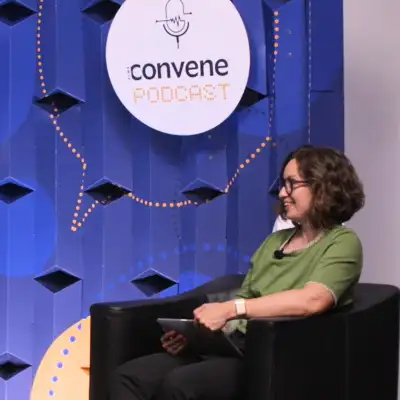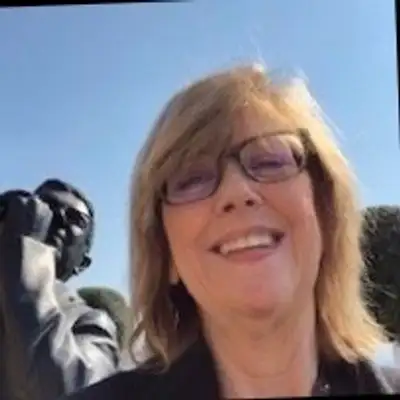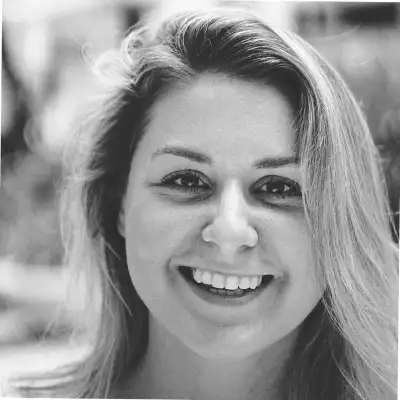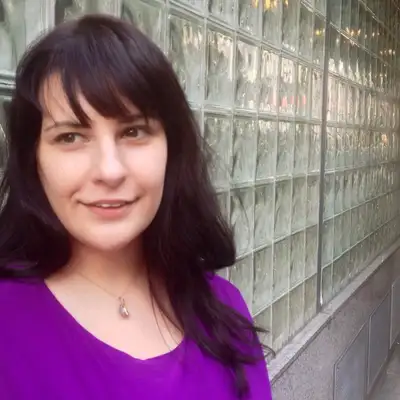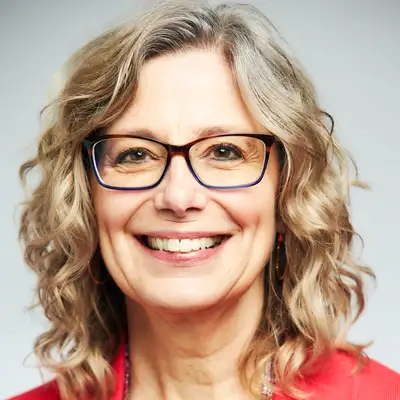Creators and Guests
What is PCMA Convene Podcast?
Since 1986, Convene has been delivering award-winning content that helps event professionals plan and execute innovative and successful events. Join the Convene editors as we dive into the latest topics of interest to — and some flying under the radar of — the business events community.
Convene Talk, ep. 71/July 25, 2025
*Note: the transcript is AI generated, excuse typos and inaccuracies
Magdalina Atanassova: This is the Convene Podcast. Welcome to another episode of the Convene Talk. Barbara, can you share more about today's topic?
Barbara Palmer: Yes.
Today's topic is about the return of BookCon,
which is returning in a year,
which I thought was pretty appropriate to the pace of book reading. Like, I'm so excited BookCon is coming back in a year.
But I found it really interesting because of kind of the history of conferences and what this illustrates about that.
Book Expo was the very first iteration of a booksellers conference.
And it had a different name when it was founded in 1947.
But it was the place where everybody went, the librarians went,
people who owned bookstores, publishing companies.
Everybody went to, like, finalize their list for the next year to find new vendors, to find distribution.
And it was huge.
And it initially,
it rotated around different cities in the US but it had a big international audience.
And then In I think,
2014,
BookCon joined Book Expo because Book Expo got smaller and smaller. And BookCon was a way to kind of open it up to consumers.
And it really caught my eye because I did go to Book Expo when I lived in New York, and it was a Willy Wonka and the Chocolate Factory experience for me.
I mean, Javits is a huge convention center, and it was filled with books and booksellers.
And it also had started to have that consumer.
The consumer facing parts of it. BookCon wasn't officially part of it, I don't think, when I went. But there were lots of panels,
there were celebrities. And when I read the announcement in Publishers Weekly about how it's being reinvented,
I thought it just said a lot of things,
both about what's going on kind of culturally right now and also what's going on in the industry,
because they're just really reimagining BookCon and having a lot of community kind of community features.
The ones that caught my eye was book clubs,
place for book clubs to meet. There were Michelle that were crafting.
I'm sure that did that catch your eye, crafting sections where maybe you could crochet and talk about books.
But also when I was talking to Imani Ellis, who spoke at edUcon, we talked a little bit about the reemergence of offline spaces,
which are things like book clubs and record listening clubs.
And those are really proliferating.
And it seems like BookCon in the story about,
talked about how BookCon was a way to really meld the virtual world of like, book talk and all the virtual,
the online bookselling with the physical, real world.
And it just seemed like a way for people to get, get back together,
just person to person with embodied objects like books.
So I just thought it was exciting.
And I'd love to know what you guys thought when you read that.
Michelle Russell: MICHELLE the first thing I thought of is that my very first convention was the American Library Association Book Fair.
That was my very first, and I don't. It was in the Dark Ages,
and it was when I was an editor, a book editor.
And the big topic of discussion at that time was whether people would still continue to read books because movies had just come out on video and there was like some, well, why are people gonna buy books when they can just sit home and watch movies for the first time ever?
And so that just ages me. But it brought me back to that conversation. I mean, that point in time. And now looking at this, I just think, wow, young people read books, they love books enough that they would reinvigorate, reinvigorate this,
this expo.
So that makes me feel happy just to think that all those years ago,
books proved everybody wrong, and they continue to be something that people share and talk about and continue to buy and rent from the library or whatever.
Jennifer N. Dienst: Barbara I felt like the article resonated in the same way for me when I started reading it. My first immediate thought was,
I love that they're bringing this back.
I feel like books have had a resurgence, like you said, culturally,
and that you,
at least me, I. And I feel like other people have noticed this too.
Book clubs are like the new club.
I feel like my fellow millennials will get that. But, like, basically,
you know,
I feel like, like you said, it's like the new gathering space. I'm hosting a book club in a month.
We talked about that when we saw each other a couple weeks ago. But in Book talk, Book talk is huge.
I feel like there's just a whole new group of people who are interested in books and they're sharing it in ways that maybe didn't exist previously. I mean, I know book clubs have been around for a long time,
but it seems like they're sharing it a lot more online, which is such,
so ironic, you know, like, they're talking about their book clubs and their IRL gatherings online, but I think it's, it serves as a great tool to bring people together,
regardless of where it is.
I'm super excited to see how this event taps into that community and potentially uses influencers for its own benefit.
I think that's, that's really interesting. And I think more and more events are doing that. I sat in on a webinar a couple weeks ago that Talked about how B2B influencers are becoming more of a tool for events like this.
So I'm very curious to see what happens.
Kate, what's on your mind?
Kate Mulcrone: Yes, I wanted to just add some context for what everyone has been saying, which is this is partly about people missing coming together and wanting to reoccupy that third space,
and it's partly about how different demographics of the population are reading.
As a millennial,
I absolutely love digital books,
but Gen Z feels the opposite.
That generation has a strong preference for having a physical book they can hold,
even if they're going to make a TikTok about it.
And so I think that the resurgence of these in person events with new community elements reflects a return to legacy media.
And I'm not even sure it's limited to books. We're also seeing an increase in people buying CDs and people buying DVDs.
Who knows what other meetings might come back.
Barbara Palmer: Yeah, well, it's just so interesting that you talk about physical books and eBooks because I at long last have come around to both.
Like when I read my book for I'm in a book club and the book that I read,
I get it in an eBook and that way I've got it with me.
Like I finished one of the books for my book club while I was delayed in an airport and it was just, I mean, I kind of carried the book,
but it's just like you can always have that with you if it's on your phone.
But I also want,
I want the book too. I want, I want to see how they designed it. I mean, there's so much information and like, how do they,
what's on the COVID What kind of type do they use?
It just feels good.
And so I think that when people like going back to Michelle, when you talked about will people stop reading books because they're watching movies,
the answer is like, all of it.
All of it. We're not going to leave the good stuff behind.
When I was reading a little bit about the history of BookCon,
it said the first time they did it in Javits, it was a disaster because they did not anticipate the crowds that they,
they had huge lines, they had problems with getting people in.
And I just thought that's like a little footnote that they just didn't know how popular it would be.
Magdalina Atanassova: When you speak about the design of books, it just reminded me I got a gift earlier this year.
I got Alice in Wonderland.
But it was a special copy with illustrations by Dali. And I was like, oh, I did not know he was illustrating books, but apparently he just did a few copies and it's a very special issue.
So I was like, whoa, very cool.
I love that gift.
But, you know,
just bringing it back to events.
Speaking about this event made me think more of how they're engaging the younger generation and they're bringing back an event with the intention of attracting young people.
So I'm thinking that would be a great example for our industry because we're struggling so much, attracting the younger generation and engaging them. And I love the fact that they're capturing Book Tok and all the other social media variations and how social media currently made book authors,
you know, celebrities,
and how the young are eager to interact. All kinds of books. I have a friend who's.
So she's buying the eBook, I guess she's getting also the physical, just because of the love of physical. But she also has an option that she gets it as an audiobook as well.
But everything sinks. And I'm like, okay, that's a bit too much. Can you just get one option? Just read from that. But I get it. I mean, it's just a different way of consuming the same thing, which I really loved.
And I would love next year that we dive deeper into this example and get good ideas from them.
Michelle Russell: It reminds me that for a while, Convening Leaders had a book club.
There was a special book club that they organized it so they all read the same book in advance and then they met on site.
And I don't know how they decided on the book that they were going to read.
Whether it was completely, you know, had nothing to do with the events industry or whether it was specific to the events industry. But I think that would be a fun thing to add, a simple thing to add to conferences.
Just create a book club and let the community develop that online and give them a chance to meet somewhere on site.
Barbara Palmer: I think that's a great idea. You know,
you might be familiar,
those of us in the US with one city, one book,
like New York did it. They would choose one book that was specific to the city's history.
And I know that San Francisco does that as well.
We could have one conference, one book.
That would be fun.
And I was just thinking,
we used to write.
We had a tradition of writing about books in December, like when you're curling up with a book thinking maybe it's time for convene to have a book club.
There's A young woman named Gillian Cardinal.
And she, during the pandemic, brought people together around a book club that she organized.
And it is just a great way to build community.
It's like another way that ideas are shared among people.
Jennifer N. Dienst: Barbara, I nominate you to start, officially start the convene book club. You would be a great book club leader.
Barbara Palmer: You know, my siblings did tease me and call me Barbara, bookworm to my great irritation.
Jennifer N. Dienst: So what would be your pick if we did this today, what would be your first pick for everyone to read?
Barbara Palmer: Oh, my gosh. I mean, I like. What my mind goes immediately back to is Priya Parker.
Jennifer N. Dienst: I knew you were gonna say that.
Barbara Palmer: It was, like, such a good book. And I did not encounter that in the meeting space. I encountered it because I followed on Twitter,
book publicist.
And so I heard Priya Parker speak at the Strand Bookstore in New York.
And it was like, you know, probably 60 people that came to hear her talk.
But I feel like I'm sure there are really lots of great books. I like the ones that are just a little bit adjacent.
They're not really about events specifically. Like, Priya is, like,
she's really good at bringing groups together. Her background is as a conflict negotiator.
So that's what her expertise is in bringing groups together.
So she's thought really deeply about who should be in the room,
how can I get them to talk to each other,
what makes them show up?
And so I think those places where people have deep expertise in one aspect of what events are would make great.
The other book that popped into my mind is Design for Belonging by Susie Witt, who teaches at the Stanford Design School.
And it's just, how do you design groups so that they feel like they belong?
And that is a short read.
Like, that's a little, tiny,
very graphic book.
Does anybody else have some. Any ideas?
Jennifer N. Dienst: I am still reading this because I'm really bad about starting books and getting distracted.
Mine would be. Hold on. Would be this book. I'm Almost There. I wrote about it, I think, like, a year ago in, like, the Trend, one of the trends pieces that we did.
But it's the New Tourist by Paige McClanahan,
and it talks about the good and bad effects of travel and tourism on people and places and things.
And I like it because it talks about that, honestly. But it also talks about how we can improve upon it, how to fix over tourism and why tourism and travel is still good.
That's why I like it. I like her take because it's not doom and gloom. It's let's have an honest conversation about how to fix some of these ill effects.
That would be my pick.
Michelle Russell: I love to read, but I have,
I think since I started working here, I have limited my reading because I read all day long online.
So I like to listen to books now so I can multitask.
And I'm listening to Malcolm Gladwell's new book called Revenge of the Tipping Point.
And I remember reading the Tipping Point and He wrote that 20.
I think he wrote it 25 years ago.
And I just love how he's circling back and looking at how he wrote as a much younger person and examining some of the conclusions he drew when he wrote that book and how he's just rethinking.
So, yeah, that would be my pick. And Barbara, I used to get punished for reading instead of going outside and playing.
So I can relate to you as a child.
Barbara Palmer: Same. And didn't that make it seem all the more.
Michelle Russell: Oh, yes.
Barbara Palmer: Attractive.
Michelle Russell: Yeah, I was naked in at night. Yeah.
Barbara Palmer: Yeah, that's fun. Well, I think hit a vein.
Magdalina Atanassova: Let's start the question. I'll post it in our other channels and see how many people are interested in joining our book club. If we had one.
Barbara Palmer: If we had one.
Jennifer N. Dienst: I like that idea.
Magdalina Atanassova: Yeah, sounds good. Sounds good. Book clubs are very, very in right now. Everybody belongs to a book club, it seems.
Barbara Palmer: Well, you know what, it's also just not about the book. I was complaining to my daughter about, like, I'm fairly new in the Bay Area, and I was saying it's hard to find a book club.
And she said,
well, why don't you and your friend start one?
And it's a friend that's been here a while and I have.
So I had my few friends and her,
some of her many friends came together in this book club. And it's not just about talk. It's like how you get to know each other through talking about the book.
And it's been really nice to see how my friends and her friends, like, now we're all friends and it's, it's just a really, it's a really good tool for connection.
Magdalina Atanassova: That would be perfect for first timers joining an event just to give them one more opportunity, one more common topic to break the ice to find a connection.
So, yeah, maybe we're onto something.
Barbara Palmer: I think we are.
Magdalina Atanassova: Well, thank you all for the awesome discussion.
Remember to subscribe to the Convene Podcast on your favorite listening platform to stay updated with our latest episodes. For further industry insights from the Convene team, head over to PCMA.org/convene. My name is Maggie. Stay inspired. Keep inspiring. And until next time.
